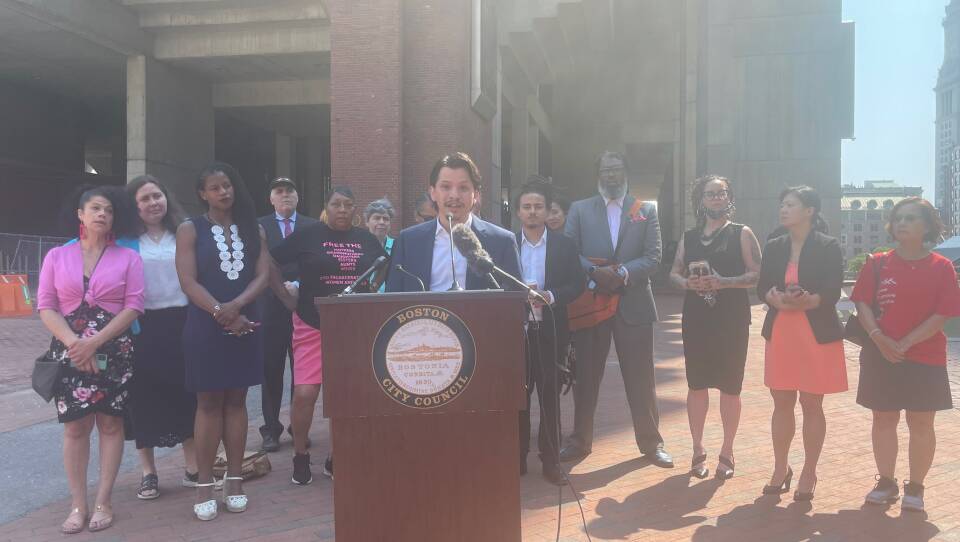Acting Mayor Kim Janey Monday approved the Boston City Council’s budget ballot question, which would ask voters in November to approve or reject granting the council a greater say in how the city spends its roughly $3 billion annual budget. With Janey's approval, the measure now goes to the state attorney general's office for final review.
The question, which would involve changing the city’s charter, would give the council the power to answer the mayor’s annual initial budget proposal with its own amendments, and to veto the mayor’s budget with a super majority. It would also initiate a new Office of Participatory Budgeting which would, by 2024, set up a process for residents to directly weigh in on how Boston spends a portion its money.
“On my first day as Mayor, I promised to bring new voices to the table and include those who felt shut out by City Hall,” said Janey in a statement. “Signing this charter amendment delivers on that promise and creates a path forward for city budgeting that is more democratic, inclusive, and transparent.”
In addition to her signature, Janey allocated an additional $1 million in the next budget cycle to be set aside for creating the Office of Participatory Budgeting.
Janey’s approval came after a long weekend of phone calls and outreach from advocates who believe Boston’s budget process should be more democratized.
On Monday morning, a group gathered at City Hall Plaza with the original intention to urge the acting Mayor’s signature. An hour after it was rendered, the press conference changed from one intended to spur her action to one celebrating advocates’ next steps.
“When we talk about what participatory budgeting means to our communities, it is significant,” said Andrea James, executive director of the women’s advocacy organization Families for Justice as Healing. James pointed to high rates of incarceration along Roxbury's Nubian Square down to Dorchester's Franklin Field Housing Authority and said the measure would give residents leverage and the potential to allocate funding “that goes directly to uplifting and creating thriving communities,” to alleviate poverty and criminal entanglements.
Back Bay Councilor and budget chair Kenzie Bok said the portion of the question that increases the council powers amounts to a routine legislative function.
“What people expect of their legislature, which is what we are here as the City Council, is that when they come and advocate to us on budget stuff ... that we’re able to make amendments," Bok said. "That’s a pretty standard legislative power… in just about every jurisdiction in this commonwealth and obviously up on Beacon Hill.”
Opponents, like the non-partisan Boston Municipal Research Bureau, have said the measure would jeopardize the city's fiscal health.
Addressing those concerns from opponents, Andres Del Castillo of Right to the City Boston said communities of color have a direct interest in maintaining Boston’s fiscal stability.
“Poor fiscal policy affects our communities the most,” he said. “[It] leads to cuts in education, in housing, in all the things that are critical and necessary to our communities.”
The question, which came in the wake of last year’s contentious budget season, has been modified from its original version which gave more power to the council and carved out a specific percentage of Boston’s budget for voters to allocate.
Both parts were changed after the attorney general’s office made suggestions that the language might bump up against city and state law.
The latest version passed out of the council unanimously.
East Boston City Councilor Lydia Edwards, who sponsored the measure, said there’s still the issue of working out the text of the question with the city’s elections department “and then it goes to the ballot in November.”






